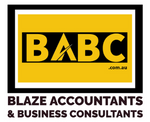“Many small businesses are doomed from day one, not from competition or the economy, but from the ignorance of their owners . . . their destiny is already decided because they have no idea how a business should be operated.”
― William Manchee, Go Broke, Die Rich: Turning around the Troubled Small Business
On an individual level, almost all have been up to the point when we with have withdrawn and used even the last remaining dollar in our bank accounts. The same can possibly happen to the business, without a sound strategy, effective planning, and, a robust business model a business surely can be led to losses one after another. A sound contingency plan acts as a shield against financial vulnerabilities on individual as well as organizational levels. According to Meritous, the successful execution of fruitful ideas is equally important because planning without effective execution is simply a theory. Whereas, an idea with successful execution comes with several potential benefits, for example, the existence of a business itself, monetization being made through it, the experience it brings along, and much more. As the new financial year started in Australia, it is great for businesses to look back on the previous year’s mistakes and learn from them. According to White Killer Chartered Accountants and Advisors, it is crucial to stay updated on relevant financial facts i.e. revised accounting standards available on Australia’s Accounting Standard Boards website. Other than that, this is particularly critical for financial service-providing firms to look into variations that happened in minimum super guarantee, minimum salary threshold edge, super stapling, STP finalizations, and vice versa. If you lack sound financial knowledge, you must seek professional advice. A successful entrepreneur plays in business with his strengths and hires others against his weaknesses. It’s not necessarily the financial advisor at all times that help, it could also be the insurance broker or legal advisor that can help to support your business in legalities. The professional advisors will not only guide your business on technicalities but will also facilitate you to create a winning budget based on the precedents that occurred in the past financial year and future financial year forecast. Liquidity of the business, debt management, financial asset protection, dealing with creditors are all the crucial aspects that a business look into throughout the whole financial year. The risk management planning process and risk planning and mitigation are no exception. It’s evident that your business will look up to the returns after making an investment to hire financial advisors, and they will jump into planning your budgets immediately. And it’s not as complicated as it might seem. They will quickly look into your income and expenses, and this could be done through the close monitoring of your bank statements, credit card statements, or any other expenditures which occurred through cash and being recorded.
Financial transparency in the financial statements of your business plays a huge role in the preparation of financially sound budgeting for next year. Therefore, many businesses seek the assistance of financial advisors, BABC being one of them. They help them to record all the nitty gritty financial aspects which occurred throughout the financial year without even a single being overlooked. The more financial transparency, the better the budgeting and the least of conflicts of interest and agency problems. Quickbook software, Xero accounting, and Myob are widely used accounting software by many financial service consultancy firms for better recording and financial reporting. Having to have monthly, quarterly financial reporting in your business strategy has multiple benefits. Businesses be it to be small or expanded one gets a chance to have a close look and revise the income statement, balance sheet, and other relevant ratios that truly keep reflecting the financial position of the business. Certainly, the major aim of every business remains to be financially sound enough to be able to cover any contingencies that may arise and still be operational on breakeven if not profitable in case of unfavorable circumstances. Or else, the business might proceed toward bankruptcy. According to the Federal Court of Australia, bankruptcy is defined as a state where people are unable to pay their debts and thus lose control over their assets and finances either by agreement or through court order over creditors’ legal actions. If you realize your financial position is deteriorating enough to reach closer to bankruptcy, you should reach out to the financial advisor as quicker as possible. Filing an Australian bankruptcy is a procedure that takes place formally. Generally, bankruptcy lasts for three years and one day. In the meantime, you might not be able to travel overseas, obtain certain employment, or obtain credit. However, after the bankruptcy time period, you will be discharged. Conditioning that you must have made repayments on secure debts i.e. your house, car, or any other asset that is collateral in a loan.
We at BABC as an accounting advisory firm understand that unmanageable debt can be a stress factor for you. And bankruptcy declaration is a way to deal with insolvency that must take place after a sound financial consultation. The Federal Court of Australia has listed all the introductory bankruptcy guides for your reference. In some cases, bankruptcy is an unavoidable factor. For instance, there might be a reduction in demand for a product or service that you are selling in the market. Or, there might be an economic downturn in general that has triggered the bankruptcy. Otherwise, in many cases, bankruptcy can be looked into if the weakening financial position is identified on time and relevant measures have been taken accordingly. Hiring a business turnaround specialist, or letting a voluntary administration take charge are a couple of outside solutions that might work. It is vital to have this realization by the start of the financial year that the company might be led to bankruptcy due to certain factors, prominent of which are poor bookkeeping, overspending, increased appetite for risk, and vice versa. All of these can be tackled by having the priorities straight regarding debt repayments. The first thing should always come first, if you owe, make it clean as quicker as possible before making any other expense. As a business, you should always strive for boosting current cash flows and generating new ones as much as possible. Other than that, several risk mitigation strategies can be incorporated to avoid financial vulnerabilities. They are like placing certain limits on bank account transactions, keeping an eye on financial accounts to monitor any unknown purchasing activity, and making sure that clean financial audit happens from time to time. In the end, all that matters is to get it ready, get it done, and stay ahead. The creation of a risk mitigation plan, and its successful execution leads to success eventually!





